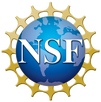Contact Us |
Administrative Support: Anna Swartz
Scientific Participation: Focus Area Coordinators Code of Conduct Violations and Concerns: Hendrik Schatz or Ana Becerril Questions for the Director: Hendrik Schatz Website: Ana Becerril Other IReNA Information: Ana Becerril |
IReNA
640 S Shaw Lane East Lansing, MI 48824 USA |
|
IReNA is a National Science Foundation AccelNet Network of Networks
|
The authors acknowledge support by the National Science Foundation under Grant No. OISE-1927130.
Any opinions, findings, and conclusions or recommendations expressed in this material are those of the author(s)
and do not necessarily reflect the views of the National Science Foundation.
Any opinions, findings, and conclusions or recommendations expressed in this material are those of the author(s)
and do not necessarily reflect the views of the National Science Foundation.
Proudly powered by Weebly

 RSS Feed
RSS Feed
